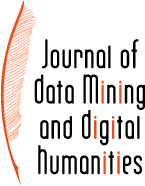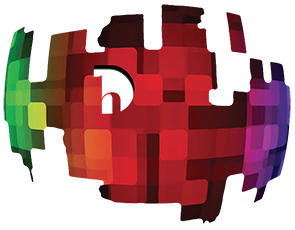 |
Atelier Digit_Hum
Numéro spécial sur les humanités numériques

édité par
J. CAVERO (MOM - CNRS FR 3747)
et
M.-L. MASSOT (CAPHÉS - CNRS UMS 3610)
Ce numéro spécial trouve son origine dans l'Atelier Digit_Hum organisé à l'École normale supérieure Paris depuis 2015. Selon un thème choisi annuellement, ces ateliers explorent les solutions techniques et les nouveaux outils développés dans les humanités numériques. Les interventions sont disponibles sur le site de Digit_Hum.
Les sections de ce volume correspondent à certains des thèmes abordés lors des Ateliers Digit_Hum. Elles sont complétées au fil de l'eau par des articles issus de présentations ou invités à contribuer à l'une des sections du numéro.
- Digital libraries and virtual exhibition
Transcribing Foucault’s handwriting with TranskribusThe Foucault Fiches de Lecture (FFL) project aims both to explore and to make available online a large set of Michel Foucault’s reading notes (organized citations, references and comments) held at the BnF since 2013. Therefore, the team is digitizing, describing and enriching the reading notes that the philosopher gathered while preparing his books and lectures […] |
|
The Artist Libraries Project in the Labex Les passés dans le présentThe creation of the Artist Libraries Project was sparked by the observation that artist libraries are still not well known, yet many art historians are interested in this archive for the value it adds to understanding the person behind the artist and his or her creative process. The problem is that these libraries are rarely physically preserved […] |
- Data deluge: which skills for wich data?
Mapping the Bentham Corpus: Concept-based NavigationBritish philosopher and reformer Jeremy Bentham (1748-1832) left over 60,000 folios of unpublished manuscripts. The Bentham Project, at University College London, is creating a TEI version of the manuscripts, via crowdsourced transcription verified by experts. We present here an interface to navigate these largely unedited manuscripts […] |
|
A Web Application for Watermark RecognitionThe study of watermarks is a key step for archivists and historians as it enables them to reveal the origin of paper. Although highly practical, automatic watermark recognition comes with many difficulties and is still considered an unsolved challenge. Nonetheless, Shen et al. [2019] recently introduced a new approach for this specific task […] |
|
The renewal of the digital humanities. An overview of the transformation of professions in the humanities and social sciencesThis article presents a study of the French-speaking digital humanities. It is based on the experience of two research engineers from the French National Center for Scientific Research (CNRS) who have been studying these issues for the last ten years. They conducted a survey at the ENS-Paris which enabled them to draw up an overview of the transformation of the profession of humanities and social sciences research engineers […] |
|
Being loyal to fieldwork: on building the "contract of silence"The aim of the present contribution is to analyze how relations of loyalty emerge between researcher and researched during ethnographic fieldwork and to defend a perspective against the principle of open science.[…] |
|
ArchEthno - a new tool for sharing research materials and a new method for archiving your own researchThe archiving of ethnographic material is generally considered a blind spot in ethnographic working methods which place more importance on actual investigations and analysis than on how archives are constructed. A team of computer scientists and ethnographers has built an initial tool for sharing ethnographic materials, based on an SQL relational data model […] |
|
Notebook and Open science : toward more FAIR playNotebooks are now commonly used in digital research practices. Despite their increasing ubiquity, the characteristics, roles, and uses associated with notebooks have seldom been studied from a social science perspective. In this article, we present an overview of the available empirical work on notebooks […] |
- Digital humanities in languages
Optical Recognition Assisted Transcription with Transkribus: The Experiment concerning Eugène Wilhelm's Personal Diary (1885-1951)This article proposes use the Transkribus software to report on a "user experiment" in a French-speaking context. It is based on the semi-automated transcription project using the diary of the jurist Eugène Wilhelm (1866-1951). This diary presents two main challenges. The first is related to the time covered by the writing process […] The second challenge is related to the concomitant use of two alphabets […] |
|
TraduXio Project: Latest Upgrades and FeedbackTraduXio is a digital environment for computer assisted multilingual translation which is web-based, free to use and with an open source code. Its originality is threefold-whereas traditional technologies are limited to two languages (source/target), TraduXio enables the comparison of different versions of the same text in various languages […] |
- Sciences of Antiquity and digital humanities
|
Éditeur invité : A. Tricoche (AOrOc - CNRS UMR 8546) |
|
Publishing open-access bibliographical data on Ancient Greek and Latin texts: challenges, constraints, progressionWe present here both some of our thoughts on methodology in relation to the specific constraints that complexify the ways of structuring and accessing bibliographical data in the Sciences of Antiquity, and the solutions adopted by the IPhiS-CIRIS project for dealing with these constraints […] |
|
Contribution to the recent history of archaeology by using some digital humanities methods and techniques applied to field recording documents of an archaeological site excavated in 1970sThis article presents the results of an archaeological archive research. Field recording documents from the Rivaux site in France, which was excavated from the 1970s to the 1990s, were exploited. After digitising a set of field notebook pages, the author developed an application, called Archeotext, which allows transcribing and georeferencing these documents […] |
Soutenu par
TANSLITTERÆ - École universitaire de recherche
ANR‐10‐IDEX‐0001‐02 PSL* and ANR‐17‐EURE‐0025
Contact
Si vous souhaitez soumettre un article à l'une des sections du numéro spécial Atelier Digit_Hum, n'hésitez pas à contacter les éditeurs à :
digit_hum(at)ens(dot)fr